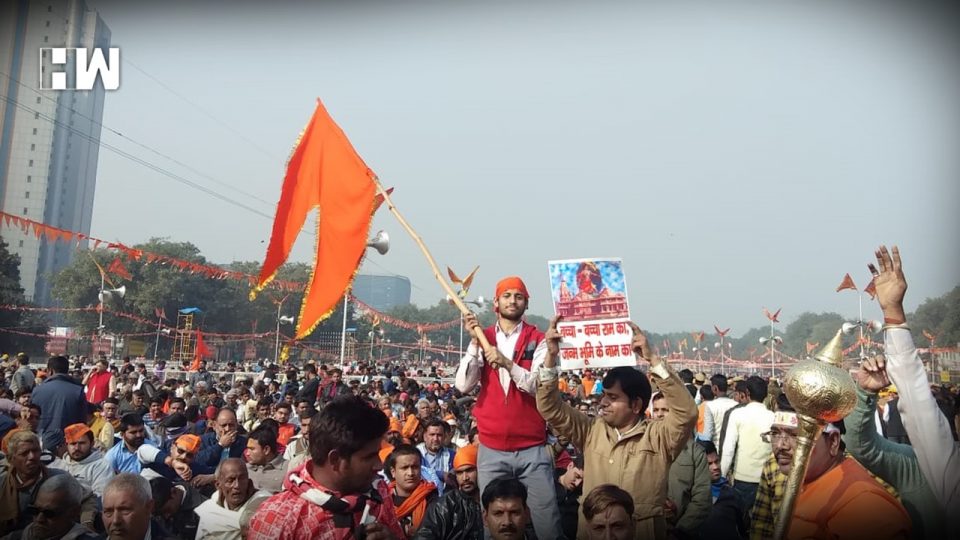According to VHP and Sant Samiti, 435 temples were demolished in Jammu and Kashmir in the 90s and now it is in favour of starting the renovation of temples.
New Delhi| Days after Modi govt abrogated Article 370 in a historic decision, the Vishwa Hindu Parishad and Sant Samaj have come up with a special demand. Both the bodies have started preparation for the renovation of the demolished temples in Jammu and Kashmir. They have demanded that temples demolished in the region earlier should be renovated and restored.
According to VHP and Sant Samiti, 435 temples were demolished in Jammu and Kashmir in the 90s and now it is in favour of starting the renovation of temples with the permission of the government and administration.
Also Read: Ram Temple construction is delayed due to PM Modi and Mohan Bhagwat: Pravin Togadia
Along with this, Akhil Bharatiya Sant Samiti and VHP are also pursuing rehabilitation of Kashmiri Pandits. According to the Sant Samiti, Kashmiri Pandits were forced to leave their homes, lands and property in the 90s. But now the situation has changed after this historic step of the government. They said if the Kashmiri Pandit wants, he can go back to his house and land and take possession and sell it to other people if he wants. “How could anyone object to this? Any citizen from any part of the country can buy their land from Kashmiri Pandits and live there,” the Sant Samiti said.
The Akhil Bharatiya Sant Samiti and the VHP have also welcomed the Ayodhya hearing in the Supreme Court for 5 days a week. Sant Samiti and VHP have also said that the hearing will be completed soon and all parties will get a chance to present their case in detail. The Vishwa Hindu Parishad hoped that the decision of the Supreme Court will come soon, which will pave the way for the construction of Ram temple.
As an independent media platform, we do not take advertisements from governments and corporate houses. It is you, our readers, who have supported us on our journey to do honest and unbiased journalism. Please contribute, so that we can continue to do the same in future.

